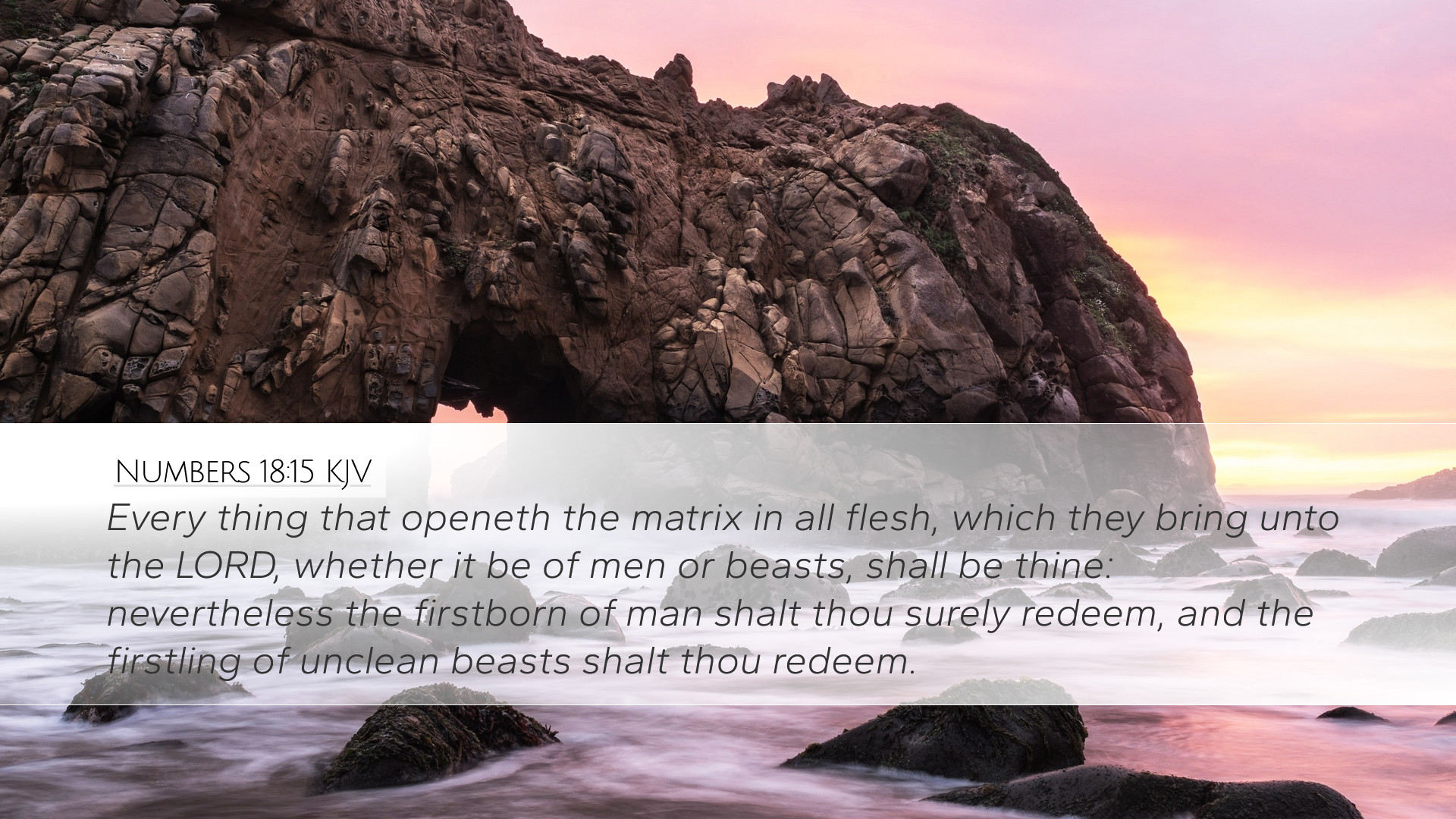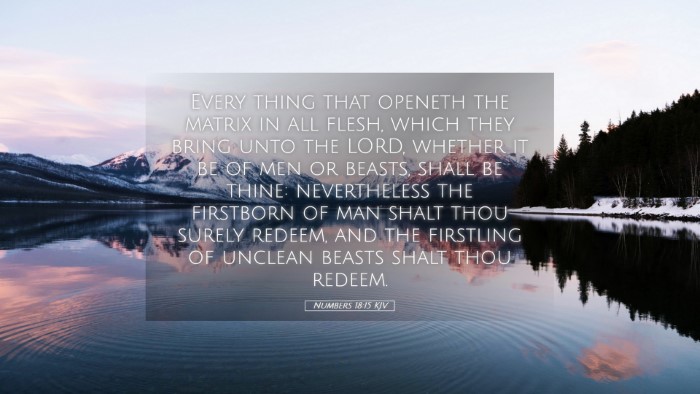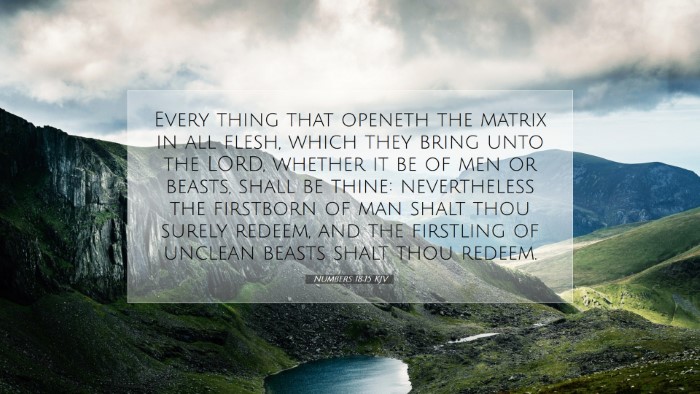Commentary on Numbers 18:15
Numbers 18:15 states: "Every thing that openeth the matrix in all flesh, which they bring unto the LORD, whether it be of men or beasts, shall be thine: nevertheless the firstborn of man shalt thou surely redeem, and the firstling of unclean beasts shalt thou redeem."
Introduction
This verse discusses the sanctity and redemption of the firstborn, emphasizing their significance within the context of priestly duties. It presents profound implications for the understanding of divine ownership and the responsibilities of the Levites. Commentators such as Matthew Henry, Adam Clarke, and Albert Barnes provide insights into the theological and practical ramifications of this passage.
Theological Significance
The firstborn in Israelite culture held unique status, both literally and symbolically. Their dedication to God represented the acknowledgment of God's sovereignty over creation and human life.
- God’s Claim on the Firstborn: According to Henry, the mandate of redeeming the firstborn emphasizes the idea that all life is ultimately owned by God. The firstborn signified the best and represented an expression of gratitude and recognition of God’s power in the Exodus.
- Importance of Redemption: Clarke notes that the act of redeeming signifies the need for atonement and the recognition of the potential cost of life. The practice of redemption reflects an understanding of human fallibility and the necessity of grace.
- Typological Interpretations: Barnes suggests that these practices prefigure the ultimate redemptive work of Christ, who is described as the firstborn among many brethren (Romans 8:29). This typology serves to connect the Old Testament law with New Testament theology.
Practical Applications
Pastors and theologians can derive several applications from this verse:
- Recognition of God’s Blessings: Recognizing that all firstborns are dedicated to God encourages believers to see their heritage and blessings as divine gifts. It promotes an attitude of thankfulness and responsibility.
- Redemption as a Key Theme: The concept of redemption can be closely applied to Christian faith. Just as the firstborn were redeemed, so believers are reminded of their redemption in Christ, fostering a deeper understanding of grace.
- Sacrificial Living: The ownership of the firstborn calls for a lifestyle that acknowledges God’s lordship over all aspects of life, prompting believers to consider what they are offering to God in service and sacrifice.
Cultural Context
In the context of Israelite society, the firstborn represented not just a child, but the family’s future and legacy. The redemption practice acknowledges the cultural importance of lineage and inheritance.
- Significance of Firstborns: The firstborn son inherited a double portion of the father's estate, and this created a sense of responsibility towards the family and God. Reflecting on this, Henry points to the communal responsibility of the Israelites to care for their firstborns.
- Implications for the Levites: The Levites were appointed to minister before God on behalf of the people, and their role is intricately tied to these sacrificial practices. Clarke highlights the notion that the priestly line’s sanctity is derived from these duties in the service of God.
- Divine Order: The structure of offerings and redemptions reinforces the system of divine order and hierarchy established in Israel. Barnes illustrates that understanding these practices requires an acknowledgment of God’s ultimate authority.
Conclusion
Numbers 18:15 captures the essence of divine ownership, the necessity of redemption, and the weight of responsibility placed upon the Levites and the people of Israel. It is a poignant reminder of the redemptive narrative that traverses scripture, culminating in the sacrifice of Christ. As pastors and theologians delve into this verse, they are encouraged to explore the layers of meaning regarding God's relationship with humanity, the role of the Levites, and the anticipation of ultimate redemption.


